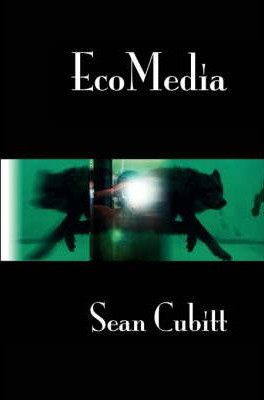Continent. journal, No. 1-7 (2011-2012)
Filed under journal | Tags: · art, culture, film, media studies, philosophy, poetry, politics, sound recording, theory
Continent. maps a topology of unstable confluences and ranges across new thinking, traversing interstices and alternate directions in culture, theory, politics and art.
Continent. exists as a platform for thinking through media. text, image, video, sound and new forms of publishing online are presented as reflections on and challenges to contemporary conditions in politics, media studies, art, film and philosophical thought.
Contributors to issue 2.3: François Laruelle, Andy Weir, Henrik Lübker, Berit Soli-Holt & April Vannini & Jeremy Fernando, Andrea Fraser, Sean Gurd, Paul Amitai, Sasha Ross, Thierry Geoffroy.
Contributors to issue 2.2: Vilém Flusser, Bonnie Jones, Eugene Thacker, Gary J. Shipley and Nicola Masciandaro, Vincent W.J. van Gerven Oei, Sean Joseph Patrick Carney, The Editors of Speculations & continent., Ishac Bertran, Duane Rousselle, A. Staley Groves.
Editors: Jamie Allen, Paul Boshears, Nico Jenkins
Creative Commons Attribution 3.0 License
ISSN 2159-9920
Download issue 2.3 (single PDF)
Download issue 2.2 (single PDF)
View issue 2.3 (HTML and PDF articles)
View issue 2.2 (HTML and PDF articles)
View back issues (HTML and PDF articles)
A Peer-Reviewed Newspaper, 1(2): In/Compatible Research (2012)
Filed under journal | Tags: · archive, capitalism, copyright, floss, glitch, intellectual property, interface, internet, market, media art, media theory, new media, software

“World of the News – The world’s greatest peer-reviewed newspaper of in/compatible research presents cutting edge in/compatible research in an accessible FREE tabloid format. The newspaper partly addresses academia’s increasing demand for publication of academic peer-reviewed journal articles. Perhaps researchers need new visions of how to produce and consume research?
The content of the newspaper derives from a Ph.D. workshop and conference held in November 2011, at University of the Arts, Berlin (organised by Aarhus University in collaboration with transmediale/reSource for transmedial culture and the Vilém Flusser Archive). This provided an insight into current research from academics, practitioners, and Ph.D. researchers from an open call. Leading up to that event, and subsequent to it, a blog (this blog) has been gathering draft articles and discussions, reflecting on the key issues. This collaborative ‘peer-review’ process is further developed during the festival itself, on 01 February, 2012. So, although this may seem like old news in many ways, in terms of research practices, it breaks with some of the current academic conventions of peer-review, academic reputation, and what constitutes proper scholarly activity.”
Contributions by Christian Ulrik Andersen, Cesar Baio, Tatiana Bazzichelli, Zach Blas, Morten Breinbjerg, Geoff Cox, Lina Dokuzović, Jacob Gaboury, Kristoffer Gansing, Baruch Gottlieb, Jakob Jakobsen, Ioana Jucan, Dmytri Kleiner, Thomas Bjoernsten Kristensen, Magnus Lawrie, Giannina Lisitano, Aymeric Mansoux, Alex McLean, Rosa Menkman, Gabriel Menotti, Andrew Murphie, Jussi Parikka, Søren Pold, Morten Riis, Lasse Scherffig, Cornelia Sollfrank, Mathias Tarasiewicz, Tiziana Terranova, Marie Thompson, Nina Wenhart, Carolin Wiedemann, Siegfried Zielinski.
Edited by Geoff Cox and Christian Ulrik Andersen
Published by transmediale, Berlin, and Digital Aesthetics Research Centre, Aarhus University, Aarhus, January 2012
Creative Commons BY-NC-SA License
ISBN 8791810205
32 pages
Project page (archived)
Publisher
PDF (21 MB, updated on 2019-9-27)
Comment (0)Sean Cubitt: EcoMedia (2005)
Filed under book | Tags: · bioethics, biopolitics, cinema, ecology, film, popular culture, technology, television

“For the last twenty years ecology, the last great political movement of the 20th century, has fired the imaginations not only of political activists but of popular movements throughout the industrialised world. EcoMedia is an enquiry into the popular mediations of environmental concerns in popular film and television since the 1980s. Arranged in a series of case studies on bio-security, relationships with animals, bioethics and biological sciences, over-fishing, eco-terrorism, genetic modification and global warming, EcoMedia offers close readings of Peter Jackson’s The Lord of the Rings, Miyazake’s Princess Mononoke, The Perfect Storm, X-Men and X2, The Day After Tomorrow and the BBC’s drama Edge of Darkness and documentary The Blue Planet. Drawing on the thinking of Flusser, Luhmann, Latour, Agamben and Bookchin, EcoMedia discusses issues from whether animals can draw and why we like to draw animals, to how narrative films can imagine global processes, and whether wonder is still an ethical pleasure. Building on the thesis that popular film and television can tell us a great deal about the state of contemporary beliefs and anxieties, the book builds towards an argument that the polis, the human world, cannot survive without a three way partnership with physis and techne, the green world and the technological.”
Publisher Rodopi, Amsterdam, 2005
ISBN 9042018852, 9789042018853
x+168 pages
PDF (updated on 2021-3-3)
Comment (0)
